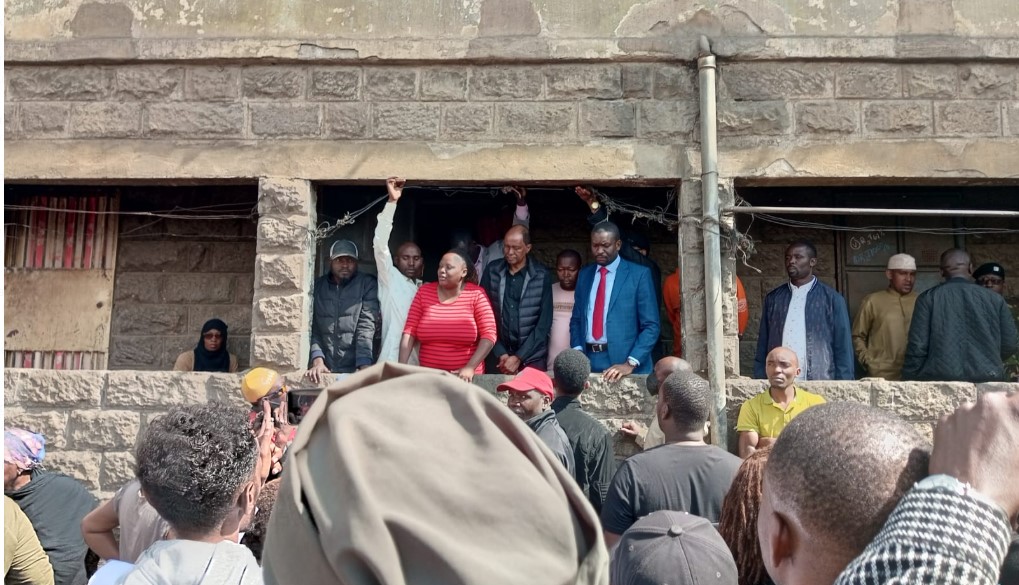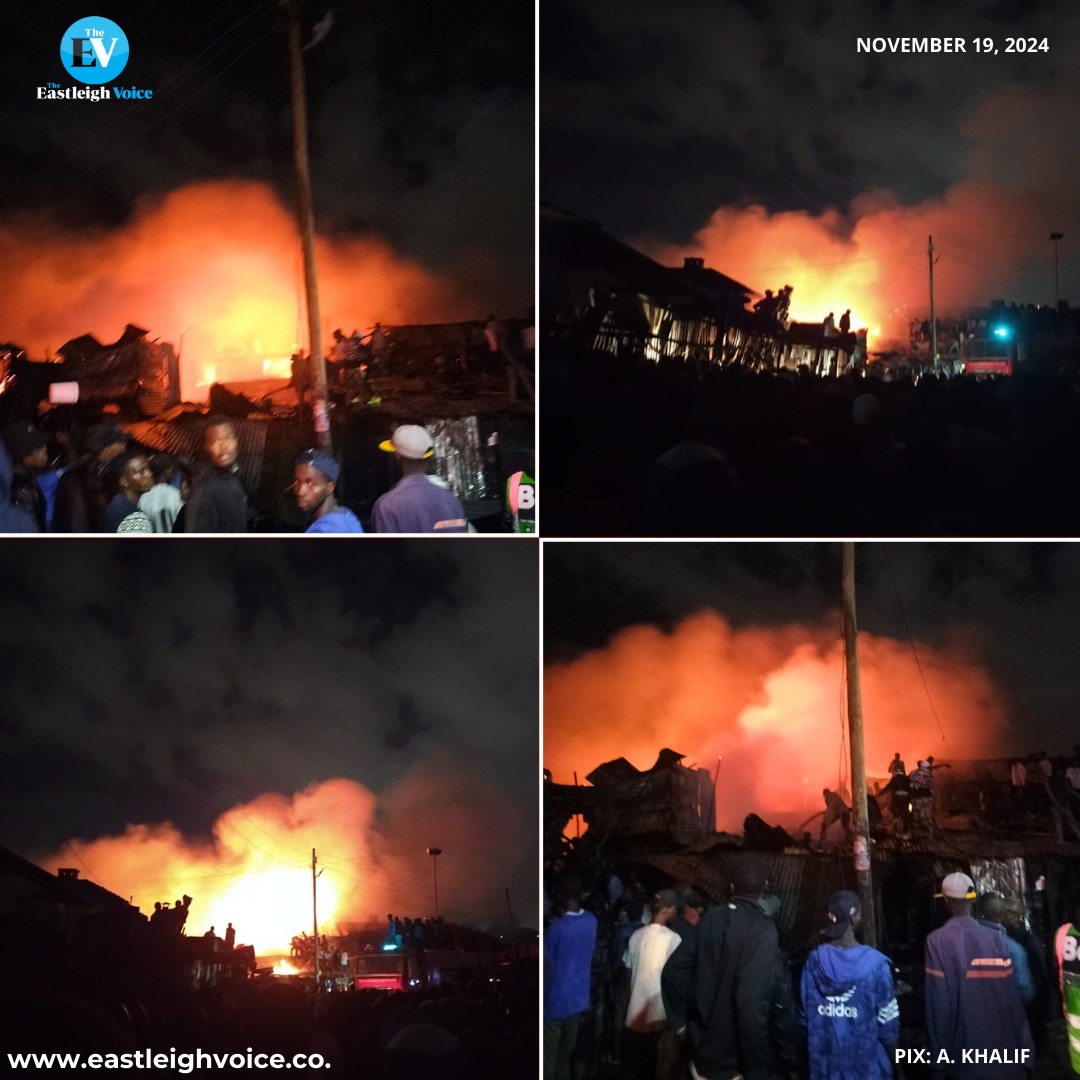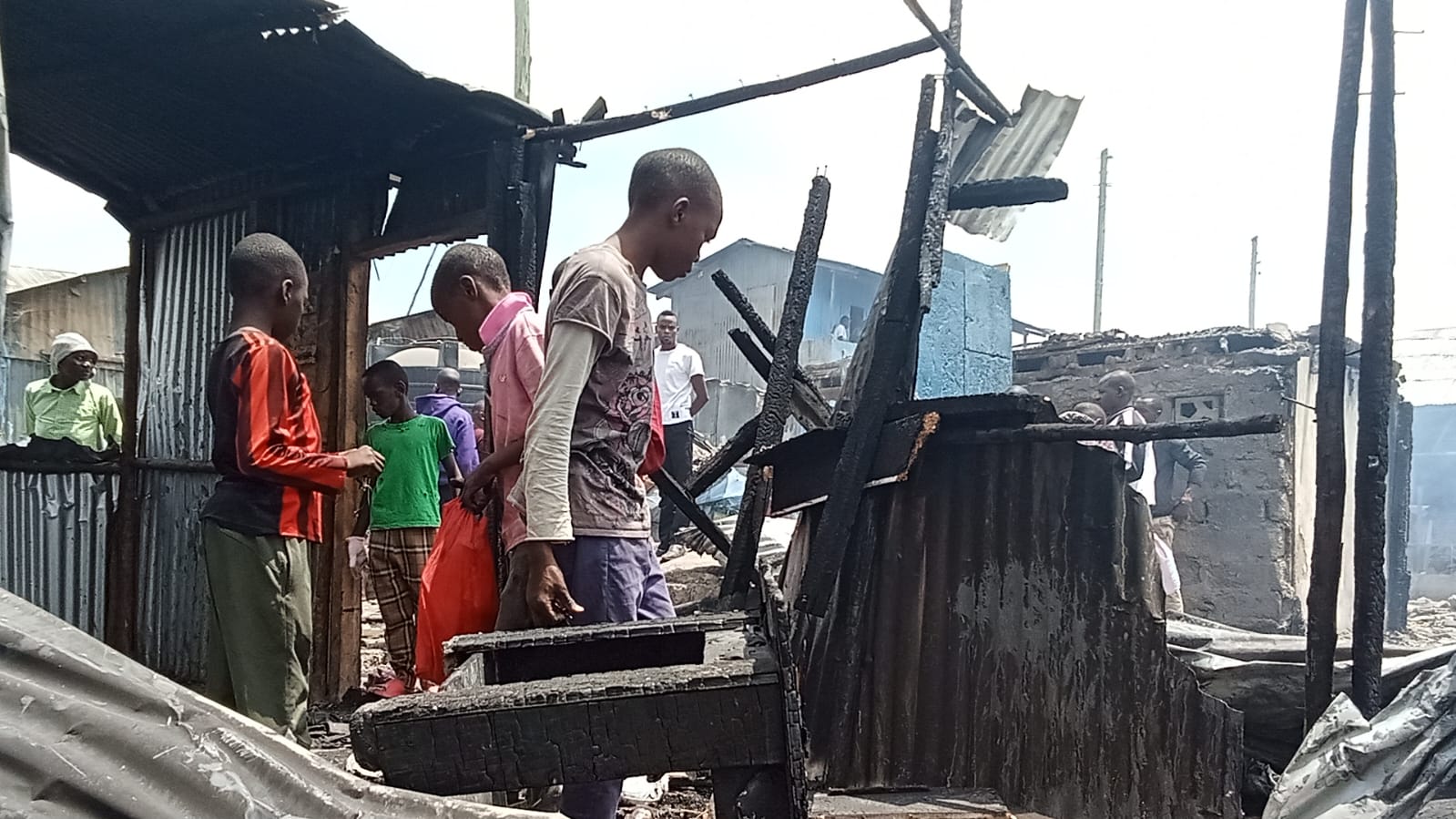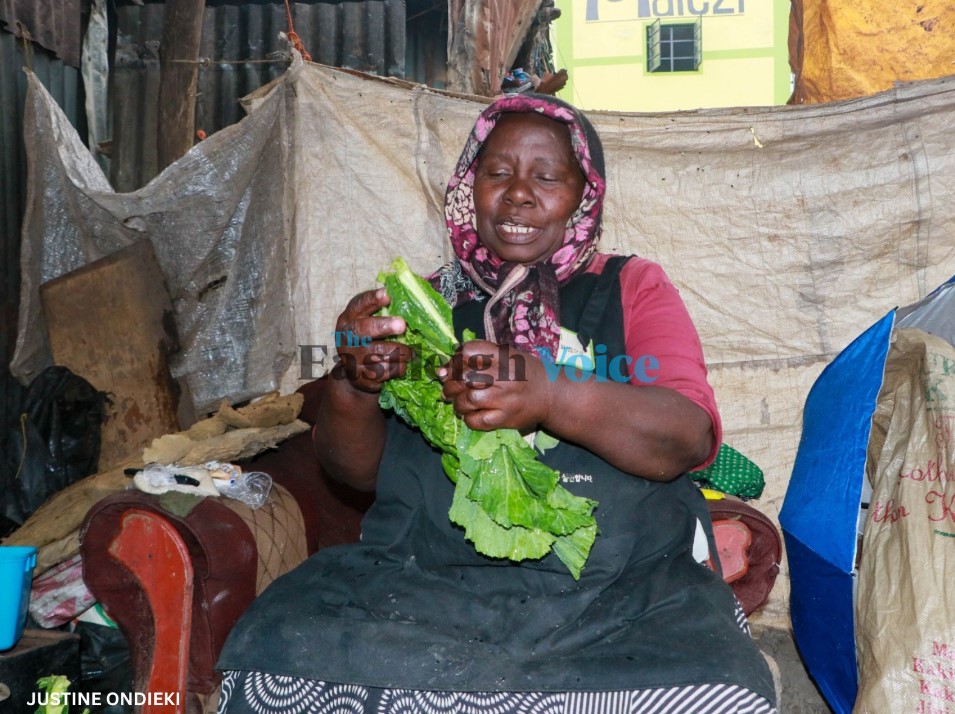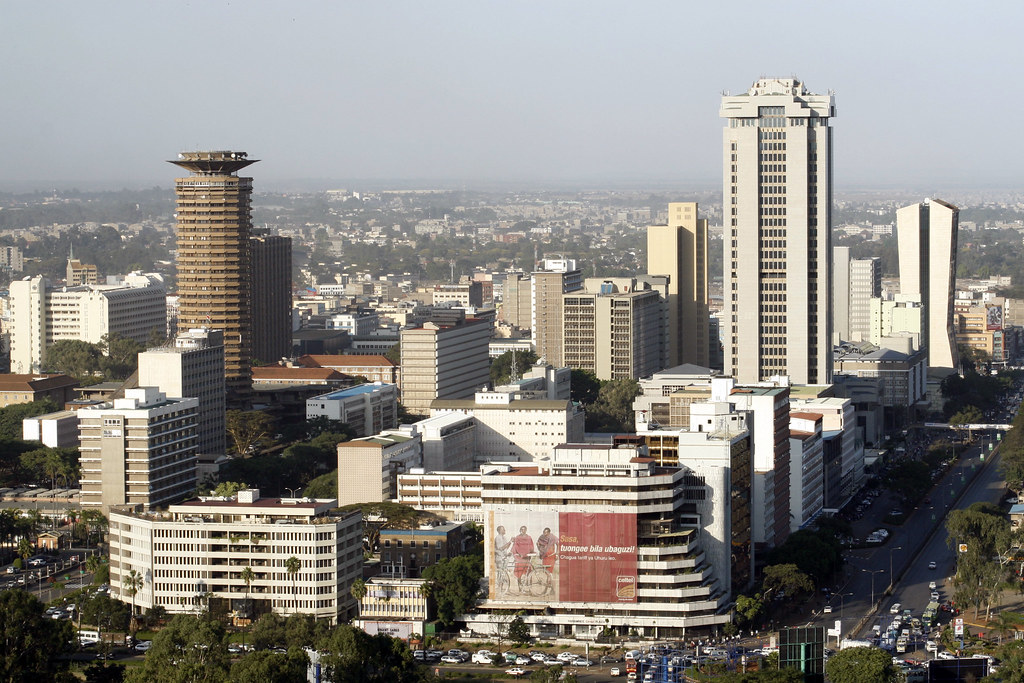Homeless and stranded: Kitui Village families suffer in rain after devastating fire
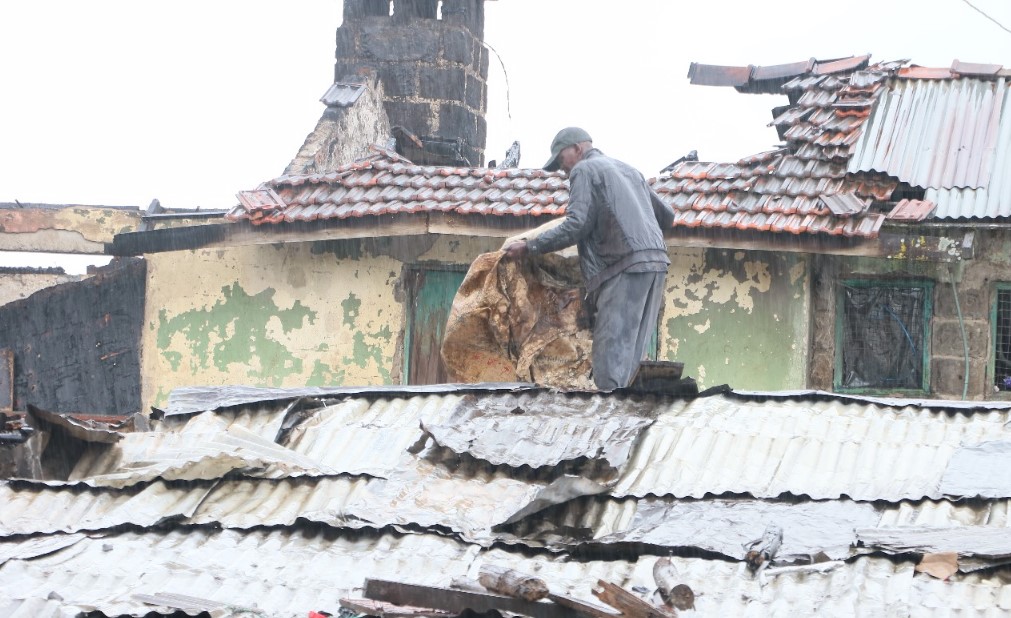
By Charity Kilei |
In the village, some residents are gathering old sheets to shield themselves from the rain, using them to build makeshift shelters.
In Kitui Village within Nairobi’s Kamukunji Constituency, men, women, and children stand hopelessly, gazing at the remnants of what used to be their homes. With only the clothes on their backs, they face the harsh reality of being displaced by a devastating fire.
The scattered rubble, iron sheets, and debris from their burned homes lie on the ground, while the nearby neighbours’ homes, which were spared by the inferno, offer no solace.
Keep reading
They are desperate for help; they have no shelter or food, and the heavy rains only add to their suffering.
Evans Wanjala, a 56-year-old father of nine from Kitui's Majengo area, has suffered a double blow. Earlier this year, during the March floods, his house was demolished because it was located in a riparian area. Forced to take refuge in a friend's house, he now finds himself once again without a home, as his friend's house was consumed by the Tuesday fire.
"We have nowhere to go, and with the heavy rains, life is incredibly difficult. We either have to endure the rain or crowd into small corners for shelter," he says.
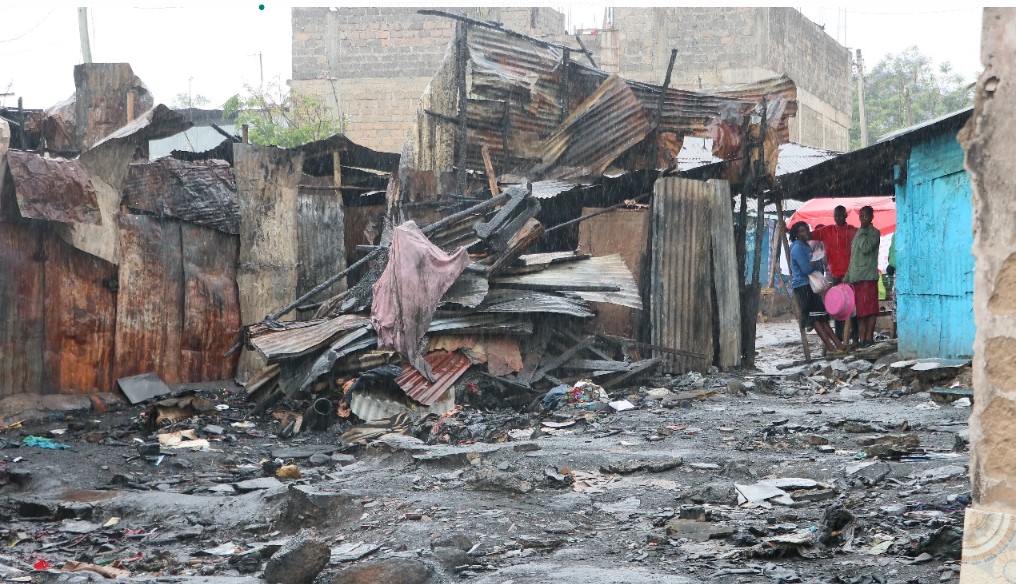 Some residents of Kitui Village shelter from the rain on November 21, 2024 after their houses were destroyed by a fire. (Photo: Justine Ondieki)
Some residents of Kitui Village shelter from the rain on November 21, 2024 after their houses were destroyed by a fire. (Photo: Justine Ondieki)
Help to rebuild homes
He adds that what they need most during this season is help to rebuild their homes and find a safe place to shelter from the relentless rain and the cold. The urgency of their situation grows as they struggle to stay dry and protect their families from the elements.
With more than 150 people now displaced and facing the ongoing rainy season, Wanjala and his neighbours are desperate for help. They need immediate assistance to rebuild their homes and find shelter from the harsh weather.
As the rains continue, the situation is growing increasingly dire, and the residents are clinging to the hope that they will receive the aid they so desperately need.
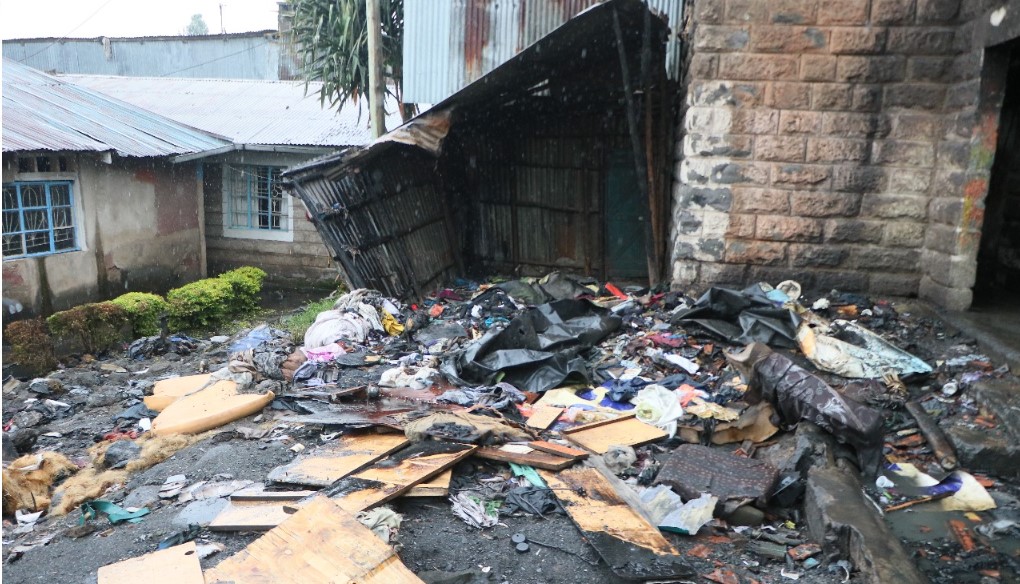 Some of the debris from the houses that were burnt by a devastating fire in Kamukunji’s Kitui Village. (Photo: Justine Ondieki)
Some of the debris from the houses that were burnt by a devastating fire in Kamukunji’s Kitui Village. (Photo: Justine Ondieki)
"All we need is a place to stay; we can look for and find food on our own. But if we receive help to rebuild, it would make a huge difference. As you can see, I'm now collecting bottles to sell in order to buy food. We are appealing for help from the government," Wanjala said.
So far, the community has received aid in the form of mattresses and blankets from the county government, which they are grateful for, but it is not enough to meet their needs.
Simon Mwita, a father of six, has found himself in a heart-breaking situation where he has had to ask different neighbours to take in each of his children, just to provide them with a warm place to stay.
"It's very hard for us right now. Imagine having to beg your neighbours to take in your children because you can't feed or shelter them. It's traumatising. We're forced to stay awake, watching day and night, with no solution in sight," Mwita says.
He is now struggling to figure out how to get his family out of this desperate situation.
He points out that they are starting from scratch — without shelter, food, or even basic necessities like clothes and cooking supplies. His primary concern, however, is finding shelter. With the rain pouring, their situation has become even more dire.
"We received mattresses and blankets, which at least shielded us a little from the cold. But we need a permanent solution because many children are exposed to the cold, and we don't know how long this will last," he says.
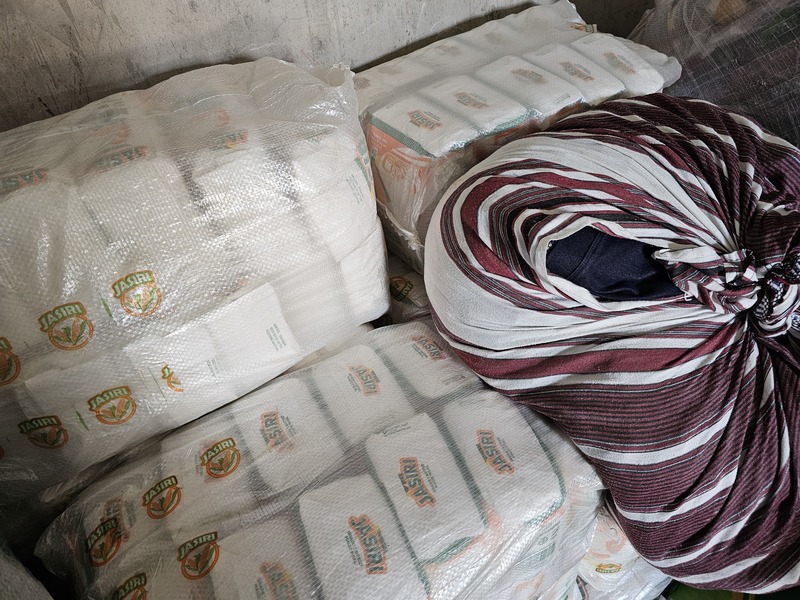 Some of the food items that were donated to the Kitui Village fire victims on November 21, 2024. (Photo: Abdirahman Khalif)
Some of the food items that were donated to the Kitui Village fire victims on November 21, 2024. (Photo: Abdirahman Khalif)
Makeshift shelters
In the village, some residents are gathering old sheets to shield themselves from the rain, using them to build makeshift shelters and even light fires to keep their children warm. Others have climbed onto the roofs of partially standing buildings, covering them with polythene to protect themselves from leaking roofs, desperately trying to survive amid the harsh conditions.
Peninah Katunge, a 39-year-old mother of two, watches helplessly as her barefooted young son shivers in the cold, wearing only a light sweater — the only item they managed to salvage from the fire. As she gazes at the rain falling outside her neighbour's house, she sees many families cramped together, seeking refuge.
"Right now, we are begging our neighbours for places to sleep. Some of us take refuge in the church at night, but during the day, we're forced to go outside to look for food," she explains.
"You can't rely on your neighbours for food because most of them are also struggling, and their houses are small, single rooms that are already crowded with their own families. When we take shelter in their houses, we sit through the night, holding our children in our arms because there's no space to lie down. Everyone needs help, but the most important thing for us is housing. We can figure out the rest," Katunge says.
As we walk through the rubble, we come across Mariam and her son, Ibrahim, scavenging for anything they can use. Mariam is relieved to find her old dress, which survived the fire in good condition. However, Ibrahim isn't so fortunate — his uniform, which he managed to retrieve, is badly burned and beyond use. The inferno spared nothing in its path, leaving devastation in its wake.
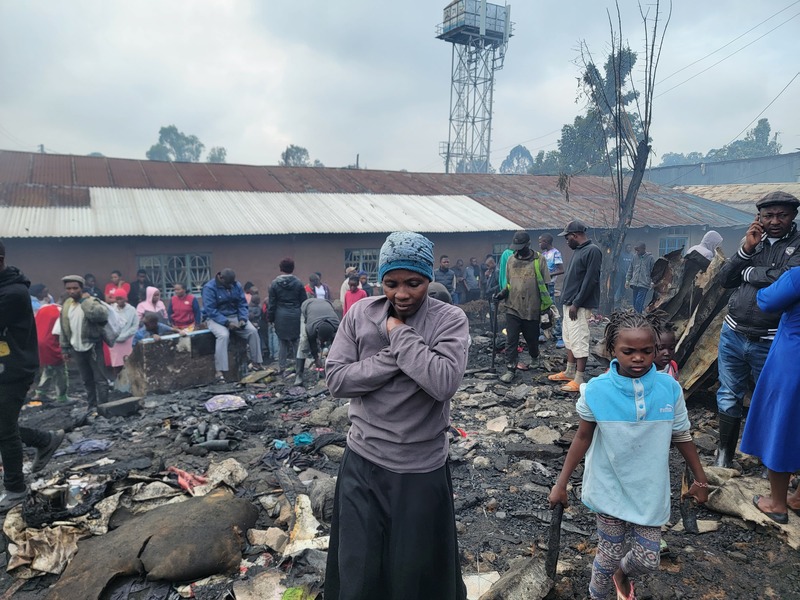 Residents try to salvage any valuables including metals, after a fire ravaged a section of Kitui Village in Kamukunji, Nairobi on Tuesday night, November 19, 2024. (Photo: Ahmed Shafat)
Residents try to salvage any valuables including metals, after a fire ravaged a section of Kitui Village in Kamukunji, Nairobi on Tuesday night, November 19, 2024. (Photo: Ahmed Shafat)
The fire that broke out on Tuesday claimed the lives of seven people and destroyed 50 households, affecting approximately 150 families.
In a statement, the Nairobi City County government confirmed that the blaze was caused by an illegal electricity connection.
Kamukunji MP Yusuf Hassan, while condoling the grieving families, called the fire the deadliest disaster to hit the area since he became the constituency's representative.
Yusuf expressed his deep sadness and pledged to work on solutions for those who lost both their loved ones and their homes.
"This is the most devastating tragedy we've faced in Kamukunji since I became an MP. It's a tremendous loss," said the MP.
Reader comments
Follow Us and Stay Connected!
We'd love for you to join our community and stay updated with our latest stories and updates. Follow us on our social media channels and be part of the conversation!
Let's stay connected and keep the dialogue going!



